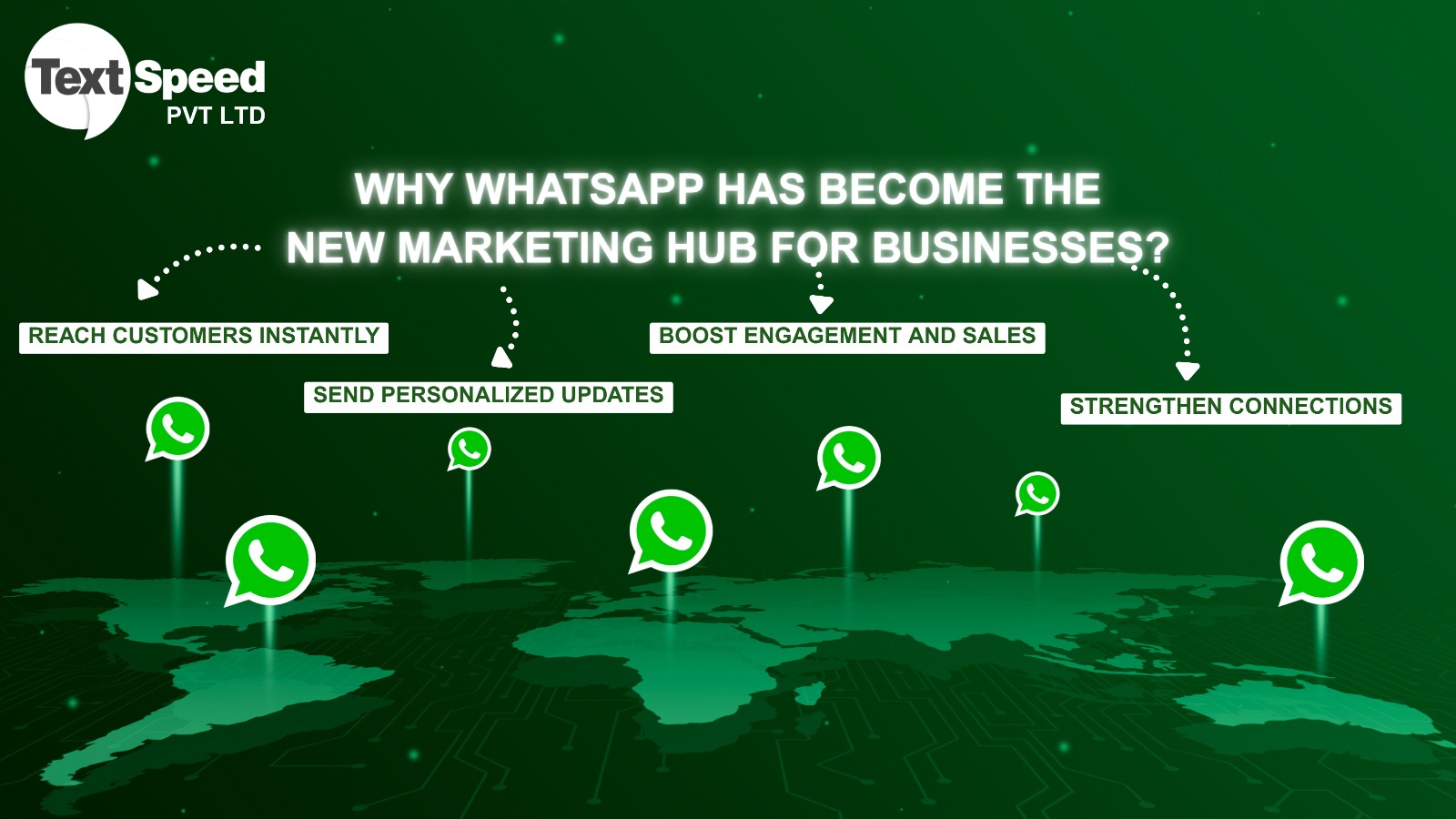Introduction
In the fast-evolving world of digital communication, customer expectations are higher than ever. While chatbots once dominated the space of instant engagement, businesses are now looking toward WhatsApp automation as the next big leap. The introduction of the bulk WhatsApp API has completely transformed how brands communicate with their audiences — delivering real-time, personalized, and scalable customer experiences that traditional chatbots can’t match.
The Shift from Chatbots to WhatsApp Automation
Chatbots were once the go-to solution for automating customer conversations. They provided businesses a way to answer FAQs, qualify leads, and engage with users without human intervention. However, their limitations soon became evident — robotic replies, poor personalization, and platform restrictions led to decreased engagement.
Enter WhatsApp automation, powered by the bulk WhatsApp API — a game-changer that allows businesses to reach thousands of customers instantly with verified messages, rich media, and personalized updates. With over two billion users worldwide, WhatsApp has become the preferred platform for customer interaction, offering unmatched open and response rates compared to web chatbots.
How Bulk WhatsApp API Outperforms Traditional Chatbots
Omnichannel Presence with a Personal Touch
Chatbots are limited to websites or social media platforms. In contrast, bulk WhatsApp API enables businesses to connect directly through a platform customers already trust and use daily. Messages arrive straight in the user’s WhatsApp inbox — personal, direct, and instant.
Rich Media Messaging
Unlike traditional text-based chatbots, WhatsApp automation allows the use of images, videos, PDFs, and interactive buttons. Whether it’s a product catalog, invoice, or promotional video, the bulk WhatsApp API brings conversations to life through rich, engaging content.
Verified and Secure Communication
Customers are wary of spam. Using an official bulk WhatsApp API ensures that your messages come from verified business profiles, increasing trust and credibility. Chatbots can’t always provide this level of authenticity.
Scalability and Speed
While chatbots engage one user at a time, WhatsApp automation allows businesses to send thousands of personalized messages simultaneously — perfect for promotions, order updates, and lead nurturing campaigns.
Two-Way, Human-Like Conversations
The bulk WhatsApp API doesn’t just broadcast — it enables real-time, two-way communication. AI-powered automation can handle responses intelligently while routing complex queries to human agents instantly.
Practical Use Cases of Bulk WhatsApp API
Customer Support Automation
Businesses can automate FAQs, booking confirmations, or complaint management via WhatsApp, reducing response times drastically.
E-Commerce Order Updates
From order confirmations to delivery tracking, bulk WhatsApp API provides real-time updates, improving post-purchase satisfaction.
Marketing Campaigns
Send bulk promotions, new product launches, and discount codes directly to customers’ WhatsApp — achieving far higher engagement than SMS or email.
Lead Nurturing and Re-Engagement
Combine automation with personalization — follow up with inactive users, send reminders, or recover abandoned carts, all through bulk WhatsApp API workflows.
Appointment Reminders and Notifications
Clinics, educational institutions, and service-based companies use WhatsApp automation to send timely reminders and maintain consistent communication.
Why Businesses Prefer Bulk WhatsApp API Over Chatbots
- Higher Engagement: 98% open rate vs. less than 20% for emails.
- Instant Interaction: Users respond faster on WhatsApp than on web forms.
- Brand Trust: Verified business accounts ensure credibility.
- Personalized Marketing: Message templates tailored to each customer’s preferences.
- Seamless Integration: The bulk WhatsApp API integrates easily with CRM tools, chatbots, and marketing automation platforms.
In short, WhatsApp automation bridges the gap between convenience and connection — allowing brands to communicate at scale without losing the human touch.
The Future of Business Communication
The future of customer engagement lies in conversation-driven marketing. With the bulk WhatsApp API, businesses can automate yet personalize every step of the customer journey — from lead generation to support. This technology is not just a trend; it’s a long-term strategy that aligns with how customers prefer to engage today.
Instead of navigating clunky chat interfaces, users can chat directly with their favorite brands on WhatsApp — the same platform they use to communicate with family and friends. That’s the true power of conversational marketing through automation.
Conclusion
The transition from traditional chatbots to WhatsApp automation marks a major shift in customer communication. The bulk WhatsApp API enables brands to engage, nurture, and support customers at scale with richer content and real-time responses. Whether you’re an e-commerce business, financial service provider, or educational institution, leveraging this technology ensures faster communication, stronger relationships, and higher conversions.
Businesses that embrace WhatsApp automation today are not just improving efficiency — they’re redefining customer engagement for the digital age.
FAQs
What is the bulk WhatsApp API?
The bulk WhatsApp API allows businesses to send personalized, automated messages to multiple users simultaneously using WhatsApp’s secure platform.
How is WhatsApp automation better than chatbots?
Unlike chatbots that operate on websites, WhatsApp automation connects directly with customers through a trusted platform, offering richer content and higher engagement.
Can small businesses use the bulk WhatsApp API?
Yes, it’s ideal for both small and large businesses that want to improve communication and automate repetitive tasks.
Is WhatsApp automation secure?
Yes, all messages sent through the bulk WhatsApp API are encrypted and delivered from verified business accounts.
Can WhatsApp automation handle customer replies?
Absolutely. Automated workflows and AI can handle common responses while forwarding complex queries to human agents seamlessly.


